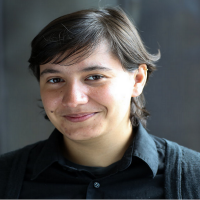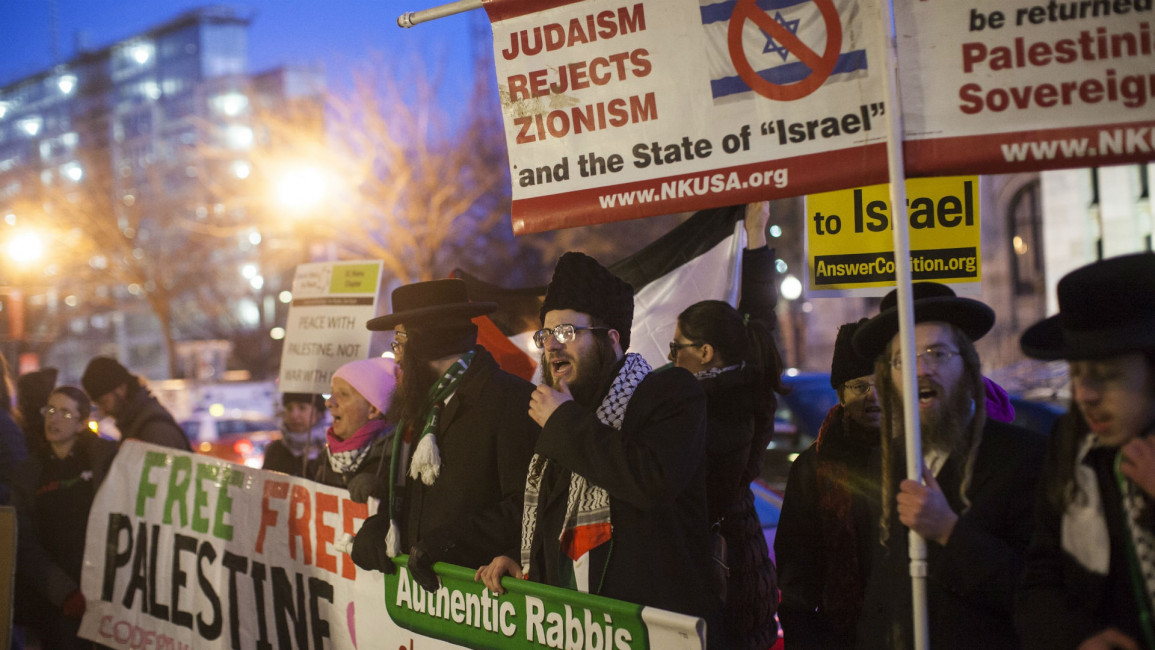
Zionism and Islamophobia: a recipe for disaster
Zionism and Islamophobia: a recipe for disaster
Comment: Pro-Israeli opinions are increasingly likely to complement anti-Muslim views, a merging of ideas that fuels a new level of hate, says Hilary Aked.
4 min read
Zionists use the West's Islamophobia to justify their atrocities [Getty]
To ask whether Douglas Murray, the associate director of the British neoconservative think-tank the Henry Jackson Society, first disliked Islam or loved Israel, is a thankless task.
These two cornerstones of his politics appear so inextricably linked that one might as well ask him about chickens and eggs.
Murray and his twin passions epitomise a trend becoming ever more prominent, namely that pro-Israeli opinions are increasingly likely to complement anti-Muslim views.
Not all Islamophobes are Zionists. Some show little interest in Israel. Others are anti-Semitic as well as Islamophobic and dislike Israel merely for its self-definition as "Jewish" - rather than for its dispossession and ethnic cleansing of Palestinians.
But many more idolise Israel. The anti-Islam movement, a strand of the far-right on the rise is northern and western Europe and the US, views Israel as a bulwark against what it sees as Islamic expansionism.
It respects Israel for being a highly militarised state based on an ideology of ethnic exclusivity and indeed sees it as a model for the so-called "West" more generally.
Meanwhile, Christian fundamentalists - whose fear and loathing of Islam trumps any reference to empirical realities, such as the existence of Palestinian Christians, oppressed by Israel in the same way as Palestinians Muslims - marry the two attitudes by seizing upon the notion of a shared "Judeo-Christian heritage".
Again, their combination of virulent anti-Muslim racism and strident support for Israel do not necessarily signify rejection of anti-Semitism, as demonstrated by remarks made in the past by people like John Hagee of Christians United For Israel (CUFI).
From Biblical origins, their ideas find expression in theologically infused politics that have significant influence, in northern America in particular.
On the other side of the equation, it would not be accurate to argue that all Israel-advocates are engaged in spreading anti-Muslim feeling. US journalist Peter Beinart, a liberal Zionist, is one prominent example of a supporter of Israel who has in fact been involved in at least one anti-Islamophobia initiative.
However, such examples are few and far between. Israeli think-tanks like the Reut Institute have long recognised that liberal Zionists pose the greatest strategic threat to the ascendant Boycott Divestment Sanctions movement, and have the best chance of undermining its growth by maintaining the centre ground. Yet it is right-wing Zionism which continues to dominate pro-Israel circles.
And right-wing Zionists have sought to either actively foment or at the very least exploit Islamophobia, in order to increase support for Israel.
Playing the "western civilisation" card, Binyamin Netanyahu himself casts Israel as the canary in the coal mine, on the front line of the war on terrorism, in his 1986 book Terrorism: How the West Can Win.
That Islamophobia has been funded by pro-Israel foundations in the US, such as the Fairbrook Foundation and Nina Rosenwald's Gatestone Institute, can also best be explained by way of reference to the belief that, put simply, fear of Muslims wins backing for Israel's dehumanising policies.
At its most extreme and crude, conspiracy theorists like Bat Yeor promote the idea that Europe will be "Islamised" and become "Eurabia" - a prospect she explicitly links to support (or as she sees it, "understanding") for Israel.
| Right-wing Zionists have sought to either actively foment or at the very least exploit Islamophobia, in order to increase support for Israel. |
On a more structural level, racialisation of Palestinian suffering under Israel's occupation, discrimination and war crimes, also allows them to be dehumanised in the eyes of large sections of the world's media.
It functions to devalue Palestinian lives and render them expendable.
In fact the demonisation of an imagined and universally savage Muslim enemy enables right-wing Zionists to rationalise almost anything - including the slaughter by Israel, last summer, of 500 children in Gaza, by gesturing towards racist tropes of sly and yet simultaneously irrational Muslims who love death more than their own children and deliberately employ them as human shields.
The discourse of "radicalisation" and "Islamic extremism" offer pseudo-scholarly theories with which to globalise and explain away through ideology the specific political factors and socio-economic context fuelling violence in Palestine.
Thus in Zionism and Islamophobia, we find two sets of ideas which are not synonymous and cannot be reduced to one another but are often fostered in the same environments.
The connection is a marriage of convenience born of a coincidence of interests - and a particularly a toxic combination.
Hilary Aked is an analyst and researcher whose PhD studies focus on the influence of the Israel lobby in the United Kingdom.
Opinions expressed in this article remain those of the author and do not necessarily represent those of al-Araby al-Jadeed, its editorial board or staff.




